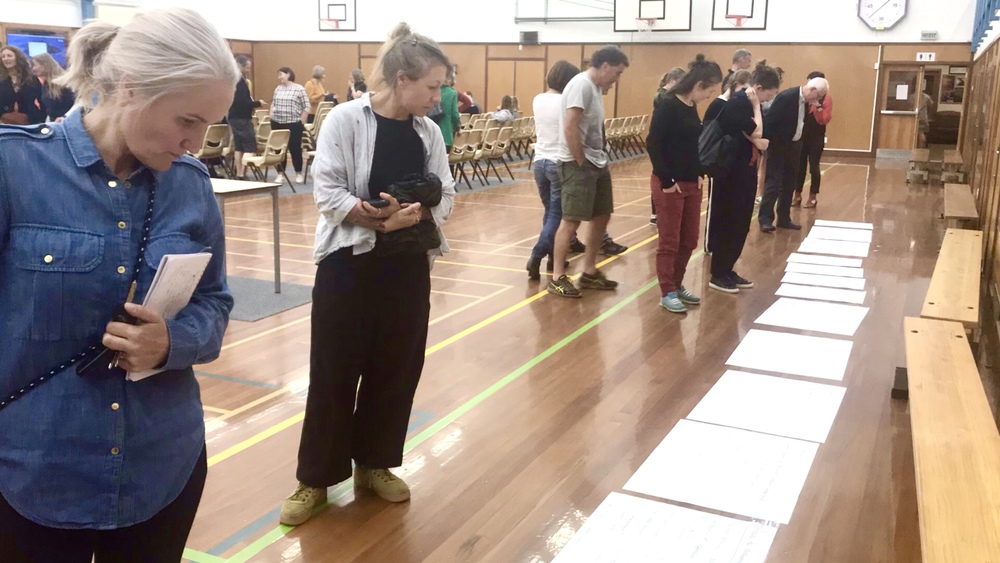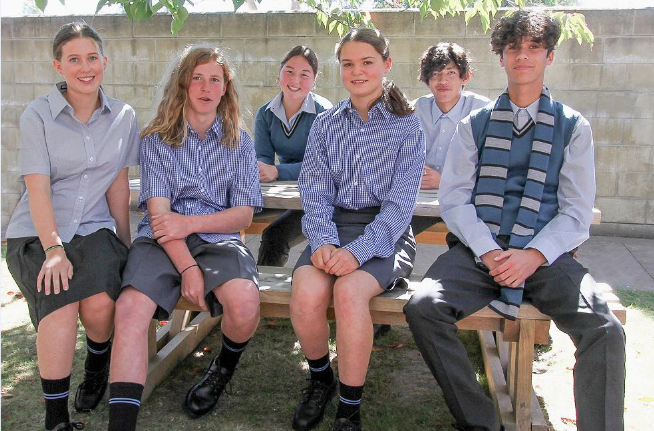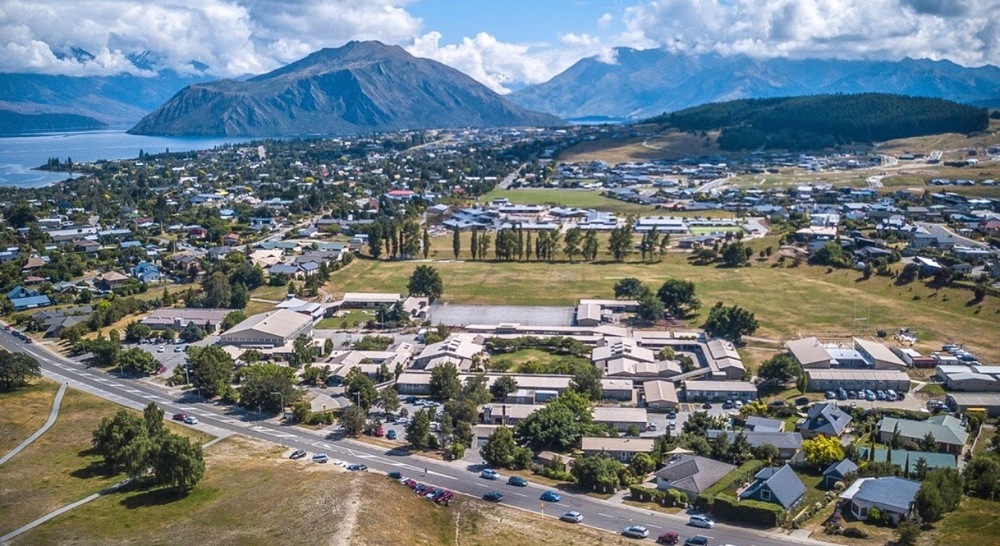‘A very good team effort’: New era for MAC
Sue Wards
09 March 2022, 5:04 PM
 MAC board of trustees chair Ian Hall. PHOTO: Supplied
MAC board of trustees chair Ian Hall. PHOTO: SuppliedOtago’s largest high school, Wānaka’s Mount Aspiring College, has moved into a new era after a tumultuous few years.
The school has a new principal and deputy principal; a revamped board is tackling issues around leadership and communication; and an exciting works programme is improving the school’s facilities.
Board of trustees chair Ian Hall credits “a very good team effort” for the changes, and says he is feeling positive.
“We know that there may be some disruption in the early part of the year, but last year’s outstanding NCEA results show that the college is well placed to ensure that students can continue to engage with their learning.”
After a poor Education Review Office (ERO) review in 2019, a group of 70-or-so parents petitioned the Ministry of Education with concerns about governance and leadership at the school. Those same parents reported back to the Wānaka App on how they believe the school is doing now.
“We are thoroughly confident and have trust that Nicola Jacobsen is doing an excellent job, including leading her team, creating positive culture and enacting effective change across all areas towards the wellbeing of students, staff and the wider MAC community,” the Parents of MAC collective said.
The group said all the issues the group had initially raised with the board of trustees and the MAC leadership team had been addressed.
“We are pleased with the progress made so far throughout governance, management and the efficacy of processes now in place, and implore any parents to make use of this if you do have any issues or concerns.”
2020 - a tough year for MAC
An Education Review Office (ERO) report in 2019, which identified MAC as a “developing school”, sparked action by the school’s board of trustees, which was accelerated by parents petitioning the Ministry of Education. The outcome was the appointment of limited statutory manager (LSM) Madeleine Hawkesby to the school in May 2020.
By July that year, Madeleine published a scoping report which identified a raft of issues in need of immediate action.
One of the first changes was the appointment of Dr Ian Hall as chair of the MAC board of trustees.

Parents take part in an engagement session in 2020. PHOTO: Wānaka App
Ian was re-elected last month at the board’s first meeting of the year, and Bridget Legnavsky was re-elected as deputy chair.
The Wānaka App asked Ian for the latest progress on the issues identified in Madeleine’s scoping report.
Strategic and focused leadership
In 2020 two groups of parents raised concerns about leadership issues at the school, two members of the BOT resigned (including the chair), and longstanding principal Wayne Bosley resigned.
The detail of Madeleine’s scoping report gave the board a set of milestones to tick off, and the board was “absolutely focused on what needed to be done”, Ian said.
Madeleine’s involvement helped in the appointment of new principal Nicola Jacobsen (at the end of 2020) and the rebuilding of the leadership team.
“We think we’ve got very strong, capable staff in place,” Ian said.
Last year the board engaged Auckland-based external consultant Mike Leach to work with Nicola and the other senior leaders on professional development. Mike has been engaged again this year for setting goals and objectives among the staff.
While there have been changes among the staff, that’s to be expected in a staff of 130, Ian said, adding there are “no more changes likely”.
“As a board we can look back on significant changes. We’ve invested a lot of energy in helping to support the leadership team.”
Increasing relational trust at all levels
While the Covid-19 pandemic has restricted the number of opportunities the board would have wanted for public interaction, Ian said, “Perhaps we’ve tried almost to the point of going overboard to communicate with the school community.”
“I think an openness to scrutiny is important. I communicate to the staff and the wider school community after each board meeting, and the agenda and minutes are all publicly available.”
“We would like to have had more public forums and we plan to do that when we have the new buildings available to us.”
This year the board must rewrite the strategic plan, and there will be significant community involvement in that process.

The school’s uniform was updated last year. PHOTO: Supplied
The review of the school’s complaints procedure - another milestone - makes explicit that when concerns and complaints are raised they have to be dealt with, first by teachers, then deans and finally the principal if the issues are not resolved.
The school’s focus is on looking forward, Ian said
“It is hard for Nicola and I to hold our hand up for historic things. The board is open to addressing any issues as they arise.”
He said there have been fewer complaints raised than would have been expected for a school of its size in the past year.
Functional working relationships among the board
“We’ve got a very cohesive board, and I feel very well supported,” Ian said.
The board is working together well and the college’s finances are “much stronger” than they have been in recent years, he said.
The board meets twice a term.
Improved communication at all levels
In addition to plans for public engagement when possible, Ian said there will be a significant revamp of the college’s website this year.
“It’s not sufficiently user-friendly at the moment,” Ian said.
The college logo is also being refreshed. The board has engaged with Ngai Tahu, and agreed to simplify the Māori name of the college to Te Kura O Tititea.
Ian said updating the logo, and making the Māori name equivalent in length to the English name of the school, was important. It will also mean the school uniform (updated last year) will have a new logo for a blazer. The blazer option will be looked at later this year.
Review and update of school policies and procedures
The reviews identified by Madeleine have all been systematically worked through.
The board and staff have “worked enormously hard” on this work programme, Ian said, and now two policies will be reviewed each term on a rolling cycle.

MAC is now the largest college in Otago. PHOTO: Supplied
The website update will also make it easier for parents to find the new policies and procedures, Ian said.
Plans in place to ensure staff engagement and wellbeing
Staff are currently busy preparing online material for isolating students as well as managing a range of other extra work such as the new curriculum and changes to NCEA.
“We’re very conscious of the pressure on staff at the moment,” Ian said.
“The lesson of the first Covid lockdown was the danger of teachers burning out. We’re just trying to be realistic.”
However, resources and time will be available for professional development, he said.
That has partly been made possible by regular and accurate financial reporting which has helped improve the college’s finances.
“We were able to generate a surplus last year, better working capital than we’ve had.”
The school donations received last year were ahead of what was budgeted for, Ian added.
“Even with the challenges in the local community we’ve had huge support. We were enormously grateful for that.”
Employment practices to be improved
While employment practices are the principal’s responsibility, Ian noted that there is a regular review cycle of particular learning areas, which is “just good practice”.
Most times those reviews involve external people, he said.
The future
MAC is one of the largest businesses in Wānaka, with a roll of 1,300 and 130 staff, and Ian described it as “a very complex business”.
During this year the college will move into the first of the new teaching spaces that are part of the major redevelopment of the Plantation Road campus.
“In 12 months time we’ll be working in facilities as good as any in the country,” Ian said. “People will be very impressed.”
There will be new music facilities, a ‘black box’ theatre, a sprung dance floor, and a new whare - the only facility of its type in the Upper Clutha.
This “significant facility for the local iwi and community” will be available from the start of next year, Ian said.
The school’s roll is continuing to increase, Ian said, and since Wānaka snowboarder Zoi Sadowski-Synnott’s medal success in the Winter Olympics the number of enquiries has gone up significantly.
ERO has now moved to a different model of reporting: They appoint an ERO staff member to work alongside a school for a period of time, so there won’t just be one single report.
“That is expected to happen this year. It is a significant milestone and we’re looking forward to a constructive engagement,” Ian said.





